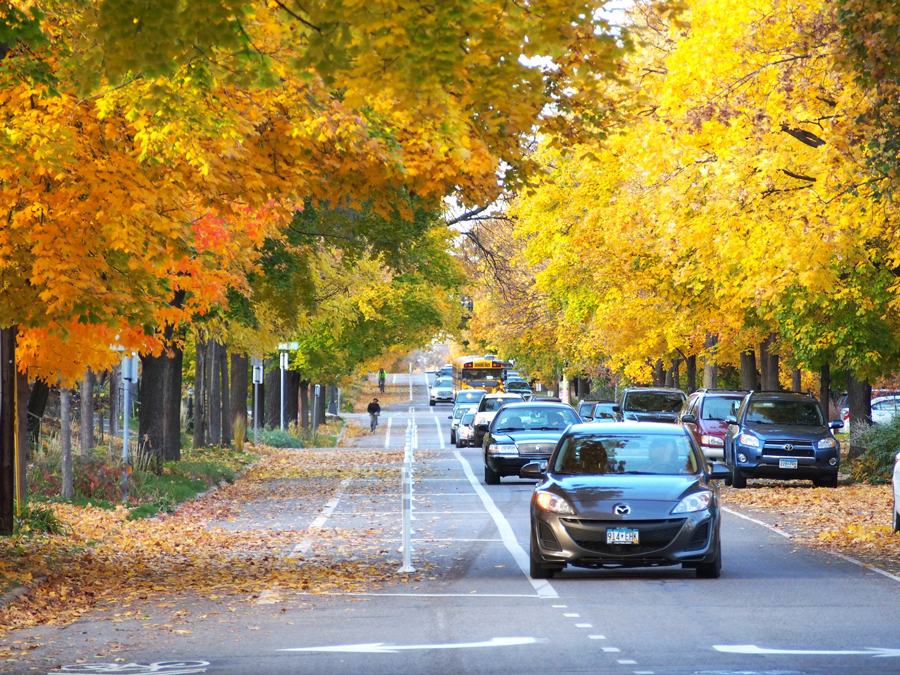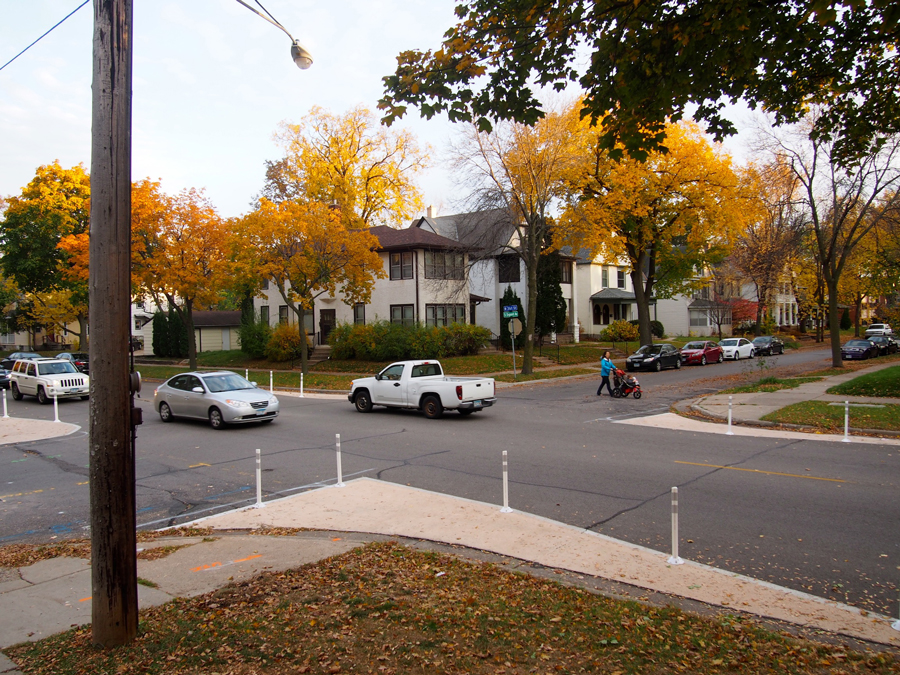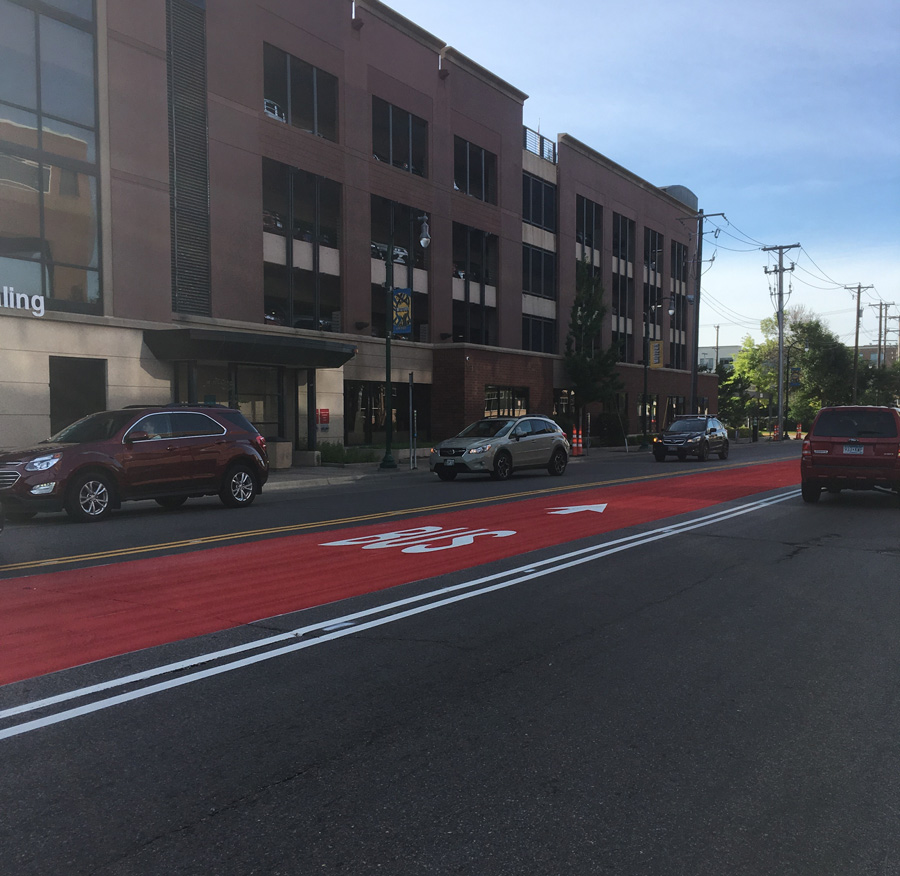Strategy 6 Induce regional mode shift by prioritizing pedestrian, bicycle, and transit facilities and operations into capital transportation projects.
The way a street operates is driven by individual choice of how, where and how fast to travel, the physical space of the street including lane and striping, signal operations, surrounding land uses and how many other people are also using the same space.
The City has long prioritized all modes when delivering transportation projects; this strategy calls out specific actions that will help more quickly elevate options for walking, biking and transit improvements. Dedicating space proportional to planned travel patterns and mode shares in a systems-based approach will help to induce mode shift.
Actions to induce regional mode shift by prioritizing pedestrian, bicycle, and transit facilities and operations into capital transportation projects.
Street Operations 6.1
Allocate street space to support planned travel patterns and desired mode shares.
Supported goals:
Mobility
Related actions:
Difficulty:
Medium
Timeframe:
2020-2023 (Years 0-3)
Status:
On-going
Street Operations 6.2
Advance the All Ages and Abilities Netowrk, transit improvements and emergency response infrastructure through the bridge maintenance and replacement process.
Supported goals:
Mobility
Related actions:
Bicycles 2.1, Bicycles 2.2, Bicycles 2.3, Bicycles 2.4, Bicycles 2.5, Bicycles 2.6
Difficulty:
Medium
Timeframe:
2020-2023 (Years 0-3)
Status:
On-going
Street Operations 6.3
Pilot innovative street operations and designs in response to changing conditions, markets, travel patterns, demographics, mode shift goals and technology to more efficiently use the public right of way.
Supported goals:
Mobility
Related actions:
Difficulty:
Low
Timeframe:
2020-2023 (Years 0-3)
Status:
On-going
Street Operations 6.4
Capitalize on opportunities to benefit vulnerable users, such as restriping streets outside of the Capital Improvement Program, adding delineators or markings and enhancing signage or wayfinding.
Supported goals:
Safety Equity Mobility
Related actions:
Difficulty:
Low
Timeframe:
2020-2023 (Years 0-3)
Status:
On-going
Street Operations 6.5
Restore or eliminate gaps in the street grid when conducting planning or development activities. In particular, as soon as possible reconnect the street grid at Nicollet Avenue and Lake Street.
Supported goals:
Equity Prosperity Mobility Active Partnerships
Related actions:
Walking 6.3
Difficulty:
High
Timeframe:
2020-2023 (Years 0-3)
Status:
On-going
Street Operations 6.6
Support efforts to obtain legislative authority for automated enforcement and if granted, support its use to enforce vehicles blocking intersections, crosswalks, bicycle facilities and travel lanes.
Supported goals:
Safety Mobility
Related actions:
Difficulty:
High
Timeframe:
2020-2023 (Years 0-3)
See also actions:
- Transit 2.8
Effective bus-only operation


